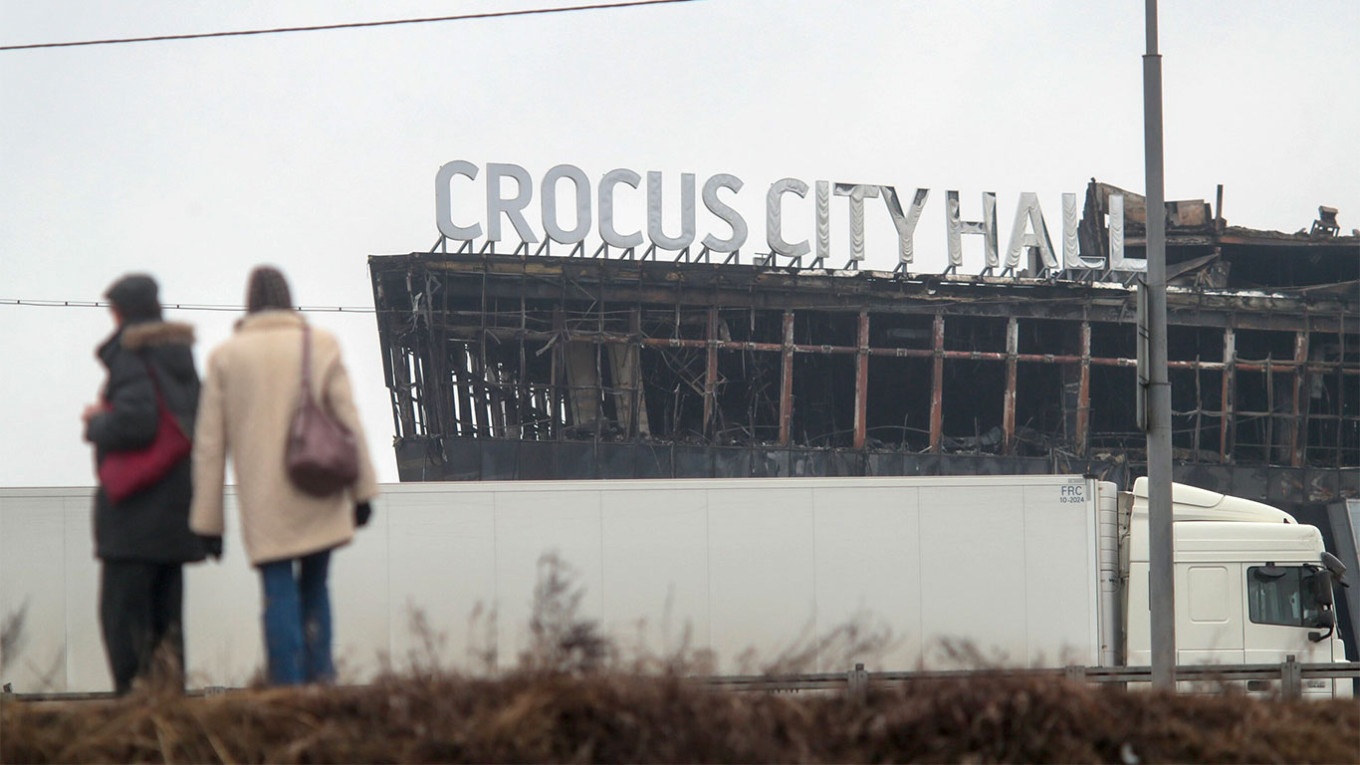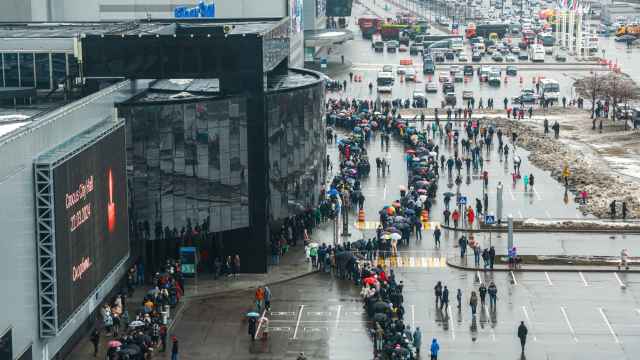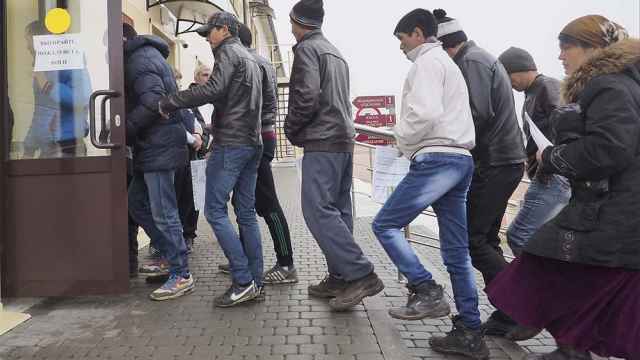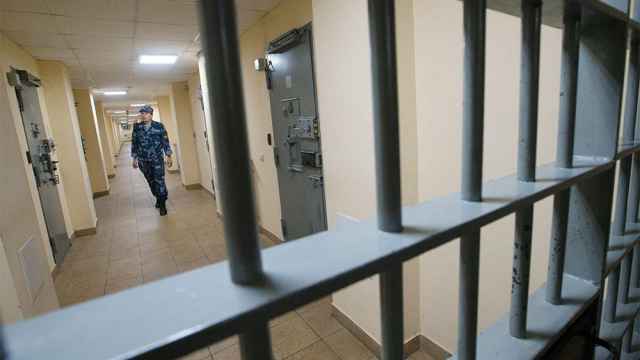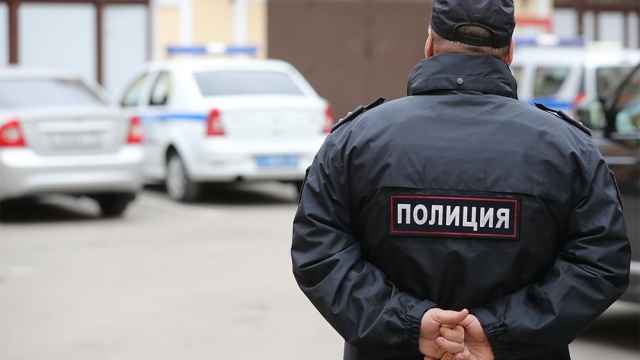MOSCOW — “I think we survived by a miracle,” said one man who survived the deadly Moscow concert hall attack that claimed the lives of at least 140 people.
Days after camouflaged gunmen stormed Crocus City Hall, those who managed to escape the horror and chaos are still grappling with the tragedy and the trauma it has caused.
“I’m trying to forget it as soon as possible. I don’t watch any news, and I don’t communicate with almost anyone,” the survivor, who asked to remain anonymous for privacy concerns, told The Moscow Times.
“The first two days were tough, to remember all that. Now I am slowly recovering, feeling better,” said Yevgeny, 27, a tram driver from Moscow who is among the survivors.
Crocus City Hall, once a popular venue for concerts and shows, is now the site of Russia’s deadliest attack since the 2004 Beslan school siege. On Friday night, gunmen broke into the venue, shooting indiscriminately at concertgoers before setting fire to the building, leaving it in ruins.
The assault on the 6,200-capacity concert hall took place before the start of a sold-out concert by the veteran rock band Piknik.
"We never miss Piknik concerts, especially at our favorite ‘City Hall.’ It's convenient and comfortable. Of course, we were planning to attend as usual," said one of the survivors, who requested anonymity.
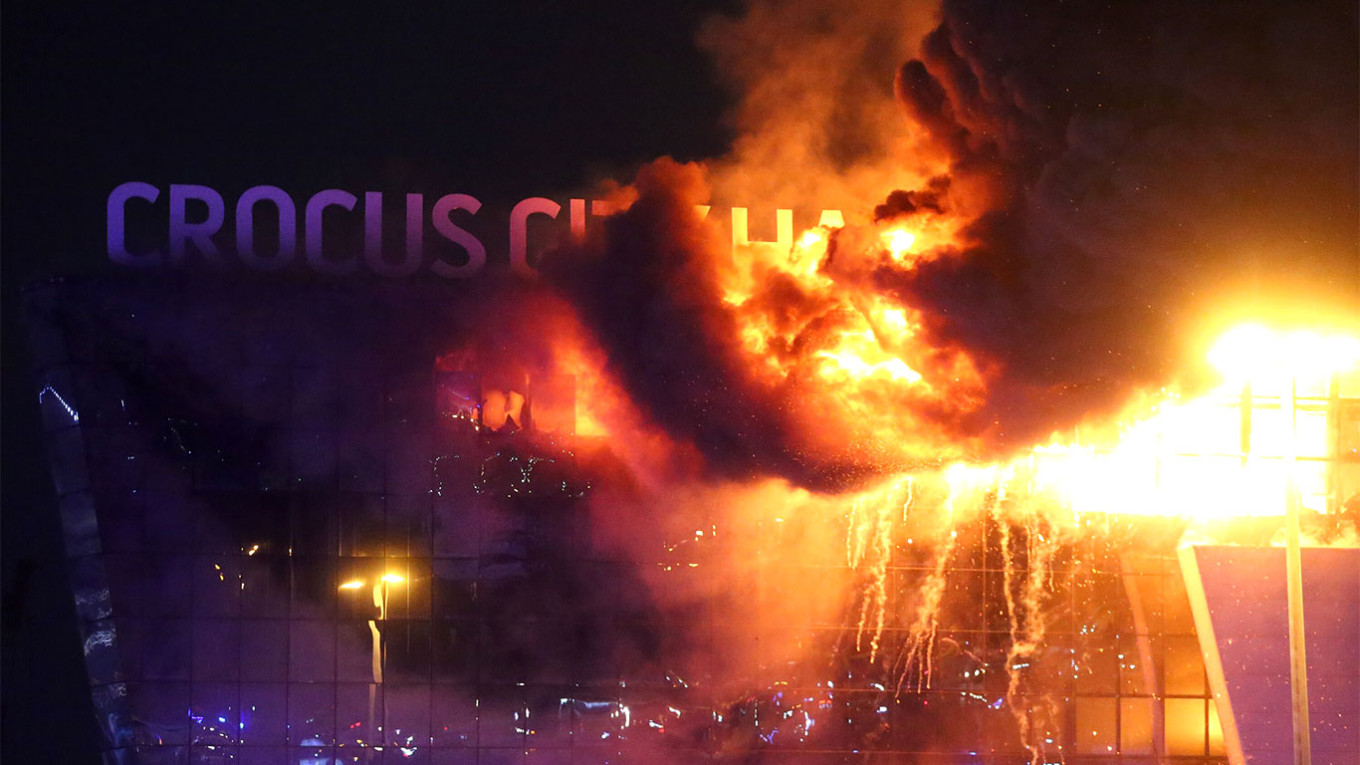
He told The Moscow Times that he and his family managed to escape in about 15 to 20 minutes with the help of an unarmed guard.
"We heard gunshots. Everyone was in a state of panic. Some had glassy eyes, while others tried to barricade themselves inside the hall. We could tell that the shots were coming from the first floor," he told The Moscow Times. “But in that moment you don’t fully understand the danger and you have no information.”
Another witness who was at Crocus City Hall with his wife and his friend said he was in his seat, chatting and waiting for the show to begin when he heard pops and saw people fleeing.
“At first we didn’t understand, there were no warnings,” he said.
As they were trying to reach the exit, a round of gunfire resounded through the hall and everyone fell to the ground, he recalls.
“I tried to see where the shooting was coming from but I couldn’t figure it out, everyone was hiding.”
Taking advantage of a pause in the shooting, he, his wife and their friend managed to reach the ground floor by breaking through locked fire escapes.
“There were signs of fighting and panic, tables turned upside down and debris all around,” he recalled.
They hid with other people in a hole in a plasterboard wall, feeling that it would be too dangerous to attempt to go outside.
“We were hiding, waiting, praying,” he recalls. He tried to call the 112 emergency number, but no one answered.
After about 50 minutes, when they were finally rescued, he could still hear sounds resembling explosions from inside the building.
Like some of the survivors who spoke to The Moscow Times, witnesses questioned the venue’s security measures and the response time from law enforcement and the emergency services.
“We just miraculously survived,” said Daria Oganyan, who was also at Crocus City Hall during the attack.
She blames the venue’s management for insufficient security measures, which appear to have contributed to the high death toll.
“It turned out that Crocus's security was nonexistent,” she told The Moscow Times, referring to the lack of emergency alerts and unlocked fire escapes.
Another survivor, however, said “the situation was difficult, and no one was ready for it,” when asked about security. When he escaped the building, he said he saw "a huge number of ambulances and firefighters" outside.
More than 5,000 people were evacuated from Crocus City Hall. In total, at least 360 people, including 11 children, were injured in the attack, 60 of whom remain hospitalized, Moscow authorities said. At least 143 requests regarding missing individuals were submitted to Russia’s Investigative Committee.
The death toll has continued to rise in the days since the attack, reaching 140 on Wednesday.
For many survivors, the days following the terror attack have been marked by intense anxiety and fear.
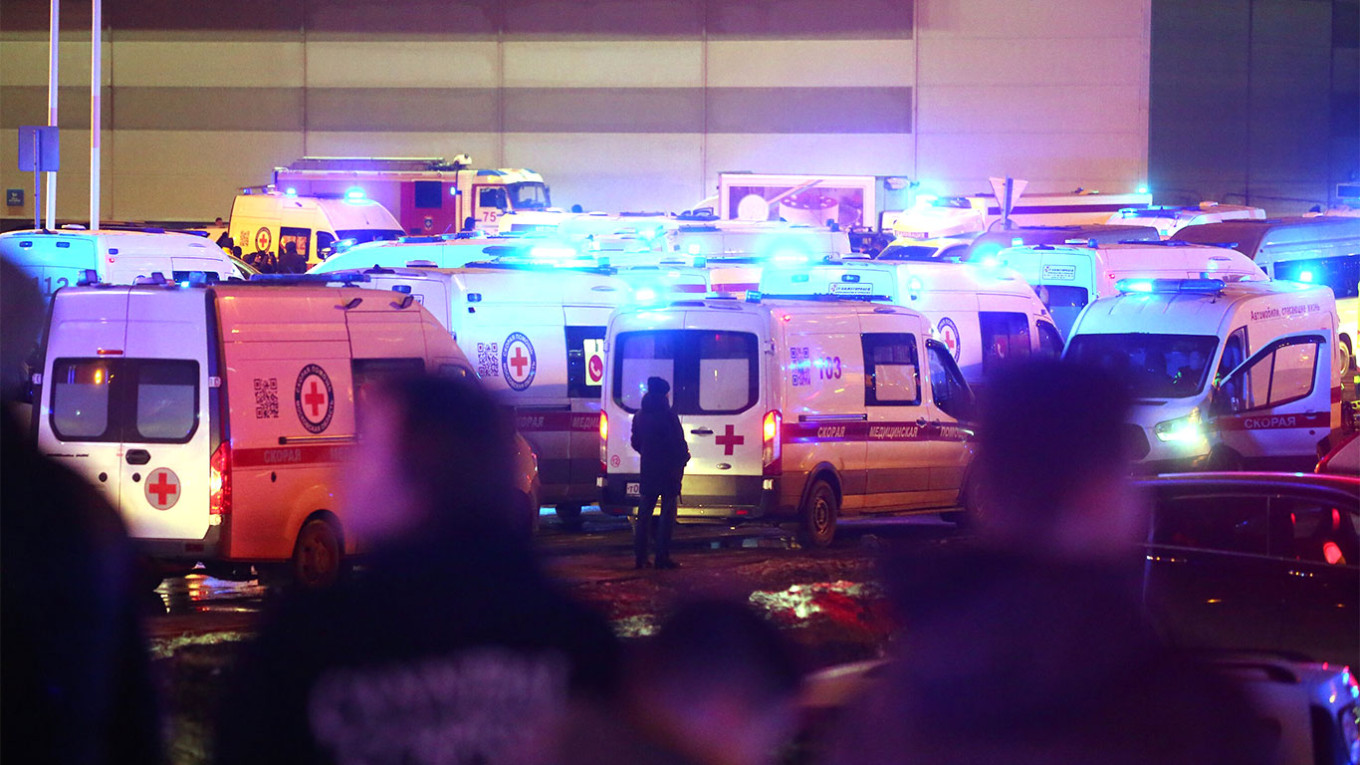
Like Yevgeny, who said “it was very hard emotionally and psychologically,” others said it has taken a toll on their mental health.
One survivor told The Moscow Times that he and his friend experienced panic attacks in the days after the attack.
Another survivor said he was planning to seek psychological help.
Four suspects — identified as Dalerdzhon Mirzoyev, Saidakrami Murodali Rachabalizoda, Shamsidin Fariduni and Muhammadsobir Fayzov — were allegedly captured in the Bryansk region.
On Sunday night, the men appeared in a Moscow court with what experts said were clear signs of torture. Unverified footage of their brutal interrogations also circulated on social media.
The men, identified as citizens of Tajikistan, were charged with terrorism and placed in pre-trial detention for two months. All four pleaded guilty, Russian authorities said. Four other people were later arrested for allegedly providing a vehicle, an apartment and cash to the suspects. In total, 11 people have been detained for their alleged involvement in the attack.
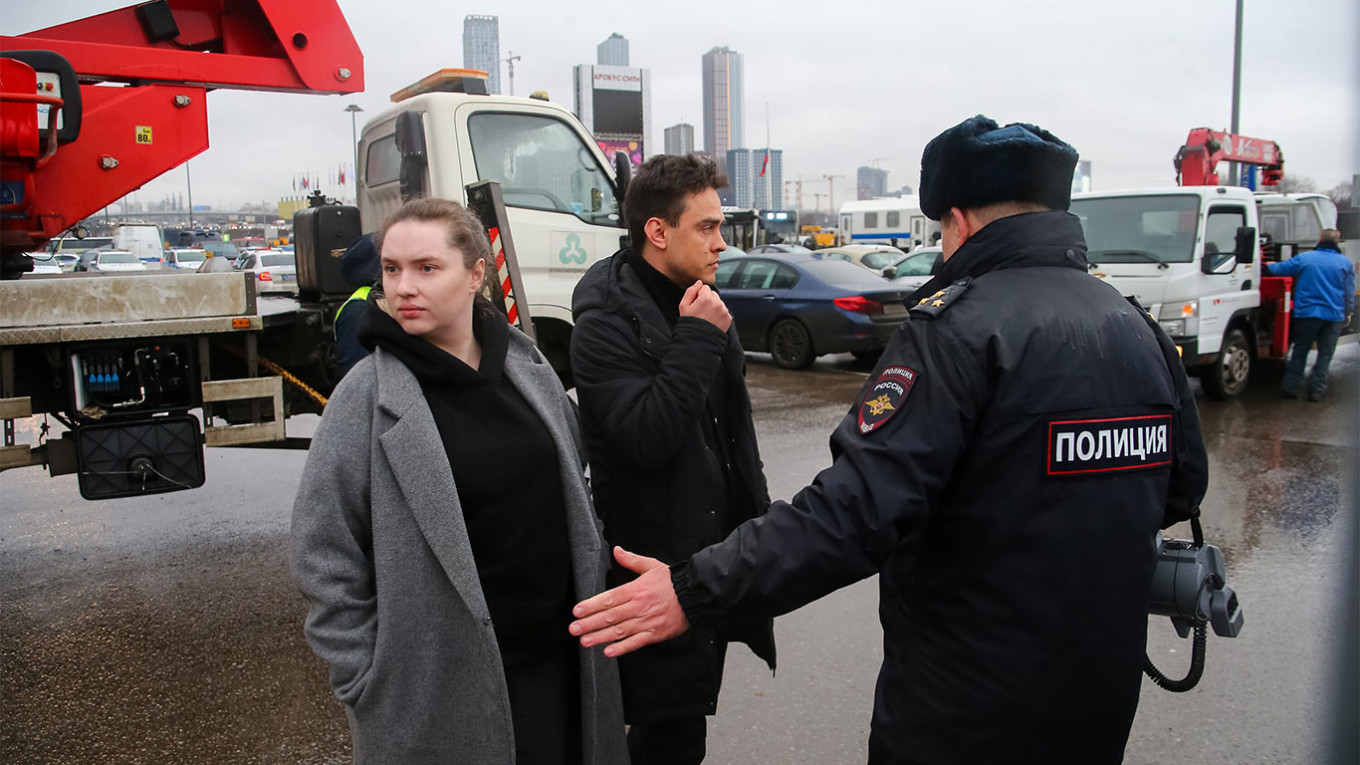
Despite the gravity of the accusations against the suspects, human rights activists have warned against handling them with violence.
When asked about the suspects’ treatment, one of the survivors told The Moscow Times he “thinks it’s not normal.”
"I definitely believe that this is not normal when it is shown to the public. We have emerged from the Middle Ages, and executions in the town square should have ended long ago," he said.
Soon after Friday’s attack, people started to lay flowers and candles in memory of the victims outside Crocus City Hall.
Yevgeny told The Moscow Times he returned to the building ruins early Sunday morning.
“I felt drawn back there to pay tribute to those who couldn’t get out,” he said.
A Message from The Moscow Times:
Dear readers,
We are facing unprecedented challenges. Russia's Prosecutor General's Office has designated The Moscow Times as an "undesirable" organization, criminalizing our work and putting our staff at risk of prosecution. This follows our earlier unjust labeling as a "foreign agent."
These actions are direct attempts to silence independent journalism in Russia. The authorities claim our work "discredits the decisions of the Russian leadership." We see things differently: we strive to provide accurate, unbiased reporting on Russia.
We, the journalists of The Moscow Times, refuse to be silenced. But to continue our work, we need your help.
Your support, no matter how small, makes a world of difference. If you can, please support us monthly starting from just $2. It's quick to set up, and every contribution makes a significant impact.
By supporting The Moscow Times, you're defending open, independent journalism in the face of repression. Thank you for standing with us.
Remind me later.



